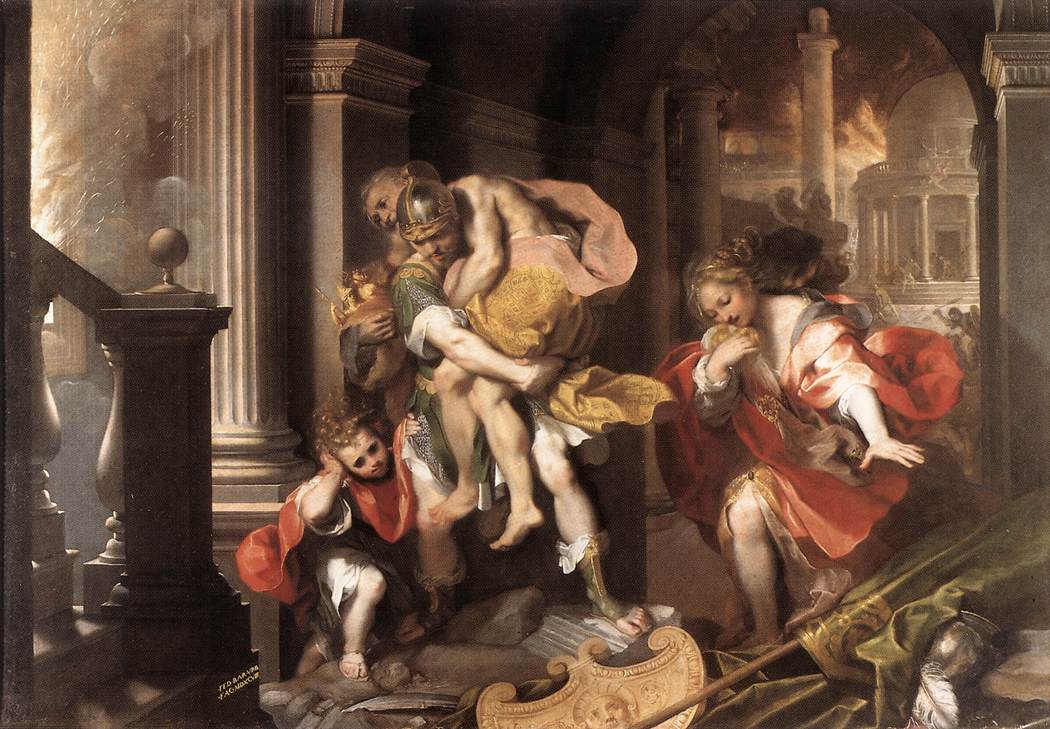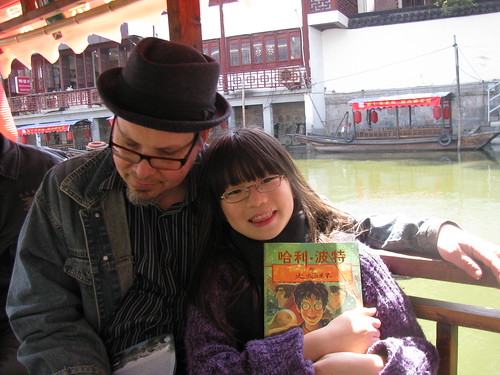🦋 “Baroque”?
 I've been using the adjective "sensual" to describe the style of writing in Of Love and Other Demons, and I find that I had earlier called a similar quality in Absalom, Absalom! "painterly." Hm: what if I called this quality "Baroque," would that work? I believe the term connotes a lot of what I am trying to communicate. Rich, lush, ornate detail; depiction of extravagant beauty. The shade of meaning I'm trying for is: gorgeous visual/sensory descriptions that point you* toward a feeling of fixed destiny, of an absence of free will. Is that too much work for such a little word to do? Feelin' like Humpty-Dumpty... I've been using the adjective "sensual" to describe the style of writing in Of Love and Other Demons, and I find that I had earlier called a similar quality in Absalom, Absalom! "painterly." Hm: what if I called this quality "Baroque," would that work? I believe the term connotes a lot of what I am trying to communicate. Rich, lush, ornate detail; depiction of extravagant beauty. The shade of meaning I'm trying for is: gorgeous visual/sensory descriptions that point you* toward a feeling of fixed destiny, of an absence of free will. Is that too much work for such a little word to do? Feelin' like Humpty-Dumpty...
Note: I have recently seen the term "Baroque" used in a literary context, if memory serves by Chad Post,** to describe the long, syntactically ornate sentences used by e.g. Saramago or Castellanos Moya. This may be why I'm thinking of the term right now; it is not however the quality I'm seeking to describe. No reason the two qualities couldn't exist side-by-side in the same work; but they seem to me completely independent of one another. Another thought, maybe the term to use is "Baroque tragedy" -- Baroque to betoken the gorgeousness of the descriptions, tragedy for the fatalism. This might work. I see however that this term is already in use.
 * (Somehow: I'm still trying to figure out how this pointing works.) ** Nope: it was Edmond Caldwell. Curse you, memory!
posted morning of Saturday, January 24th, 2009
➳ More posts about Of Love and Other Demons
➳ More posts about Gabriel García Márquez
➳ More posts about Readings

Hi Jeremy:
A very interesting post (or series of posts, connecting with your earlier one on Of Love & Other Demons), and thank you for citing me on the topic of what I called "the baroque sentence" (Chad Post does so many wonderful things over at 3% that the correction won't detract from his accomplishments, whereas I can use all the help I can get!).
I haven't read this particular Marquez novel, so I can't speak to that, but you are indeed using baroque in a sense like I'd intended in my little piece on Saramago's prose, as descriptive of both such sentences' formal qualities (long, ornate, arabesque, extravagant, overloaded) as well as what you might call "the content of their form," their latent content behind whatever manifest content that this or that different particular example might express. And that latent content is indeed (as I see it) a kind of overpowering quality (which I borrow from the historical relationship between the baroque and absolutism), subsuming the individual and her or his supposedly privatized "consciousness." Rather, such a sentence-form highlights the way that consciousness itself is not "originary" (is that a word?) but determined, constructed out of discourses which are prior to it. In other words I see such sentences as being against the old metaphysics of "the soul," including its secularized "humanist" version.
The only place where I might depart from you've written is in the idea that this entails a canceling out individual "free-will" (if I'm even correct that that is what you're saying; forgive me if I've got it wrong), because I think that's still looking at the situation through the old humanist lens (in which it's an either/or question, one either has self-originating "free will" or one is subject to iron determinism, like a puppet). I think the baroque sentence is more dialectical than this; that human agency is deeply or even thoroughly conditioned means perhaps not that it doesn't exist but that it is more collective than we thought.
I realize that this is just a sketch, and no doubt raises more questions than it answers; I've intended to get back to the subject of "the baroque sentence" and write something longer on it; perhaps this exchange will be a spur to that effort. In which case, thank you! And thank you for all the fine Saramago translations, and for your own blog as well.
[I should add that none of this controversy of humanism vs anti-humanism is especially original to me -- there were huge debates about this in literature and philosophy in France in the middle of the last century; it just seems that these insights need to be rediscovered and fought for again, perhaps, in our current situation.... I can also see that my usage of the baroque bears some resemblance to the late eighteenth and early nineteenth century idea of the sublime....]
posted evening of January 24th, 2009 by Edmond Caldwell

Wow, thanks -- a lot to think about there. I have continued this line of thought at a new post.
posted evening of January 24th, 2009 by Jeremy

(Oh and: "originary" does appear to be a word, but does not mean quite what it looks like you mean. Would "primordial" be close enough?)
posted evening of January 24th, 2009 by Jeremy
|

